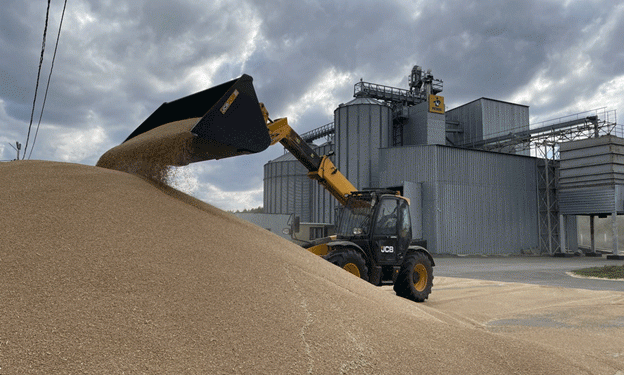In a significant move that has sent ripples through the agricultural sector, Russia’s agricultural watchdog, Rosselkhoznadzor, has imposed a complete ban on the import of wheat, lentils, and flaxseed from Kazakhstan, effective October 17. This decision follows alarming findings of quarantine pests in Kazakhstani products, which have increased fourfold compared to the same period last year.
Reasons for the Ban
Since the beginning of 2024, Rosselkhoznadzor has reported 215 cases of quarantine objects found in Kazakhstani agricultural products. This figure starkly contrasts with the 54 cases reported during the same period in 2023. These alarming statistics have raised significant concerns about the phytosanitary safety of products entering Russia, a vital market for Kazakhstani farmers.
Despite earlier communications from Rosselkhoznadzor requesting Kazakhstan to suspend the issuance of phytosanitary certificates for several high-risk products, the situation worsened. The watchdog emphasized that the Kazakh authorities did not provide adequate responses to their inquiries, further complicating the trade relations between the two countries.
Impact on Agriculture and Trade
The ban is expected to have substantial implications for farmers and agricultural businesses in Kazakhstan. Wheat is one of the country’s primary agricultural products, and Russia has historically been a significant importer. As a result of this ban, Kazakh farmers could face a considerable drop in revenue, affecting not only their livelihoods but also the wider agricultural economy.
Moreover, this decision could lead to a potential oversupply of wheat within Kazakhstan, resulting in price drops that may adversely affect local farmers. In a related development, market participants believe that Russia’s ban is a retaliatory measure in response to Kazakhstan’s restriction on Russian wheat imports, which is effective until the end of 2024.
The Broader Context
This trade disruption comes at a time of increasing geopolitical tensions, which are reshaping agricultural trade dynamics in the region. The implications of these restrictions extend beyond the immediate economic impact, as they may foster a climate of uncertainty that could deter investments in agricultural technology and infrastructure.
Additionally, global wheat prices may experience volatility due to the significant reduction in supply from Kazakhstan, a country that ranked as the world’s sixth-largest wheat exporter in 2022, with exports valued at over $1.5 billion. As countries monitor the situation, they will need to consider diversifying their supply sources to mitigate the risks associated with these developments.
The recent ban on wheat imports from Kazakhstan is a clear indication of the growing concerns over phytosanitary safety and the complexities of agricultural trade in a geopolitically charged environment. For farmers, agronomists, and agricultural engineers, it is crucial to adapt to these changes by exploring new markets, enhancing agricultural practices, and staying informed about regulatory changes. The evolving dynamics will necessitate innovation and collaboration within the agricultural community to navigate these challenges effectively.
Error





